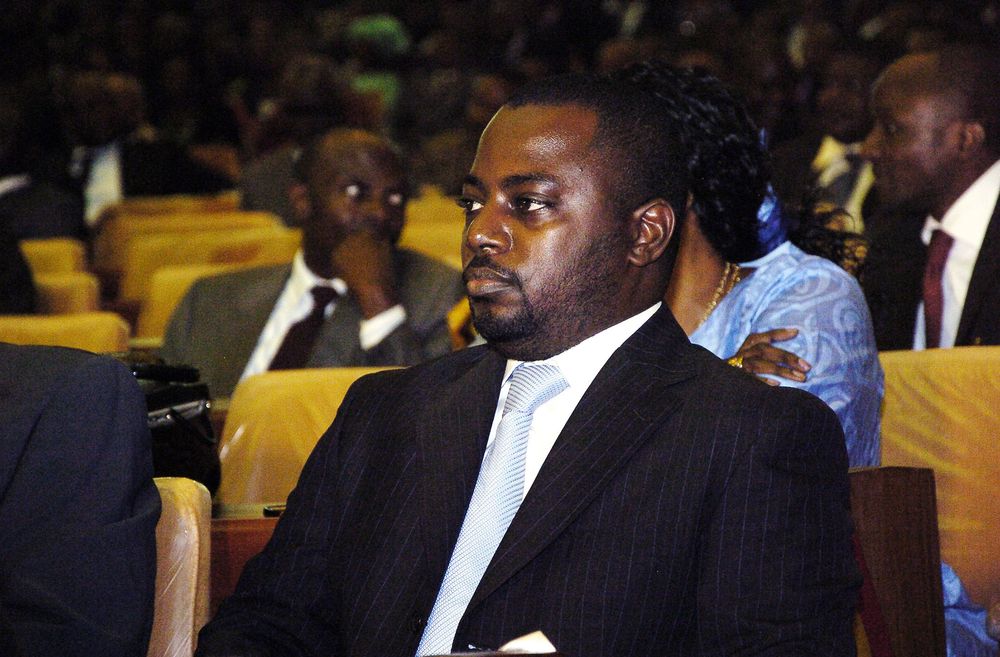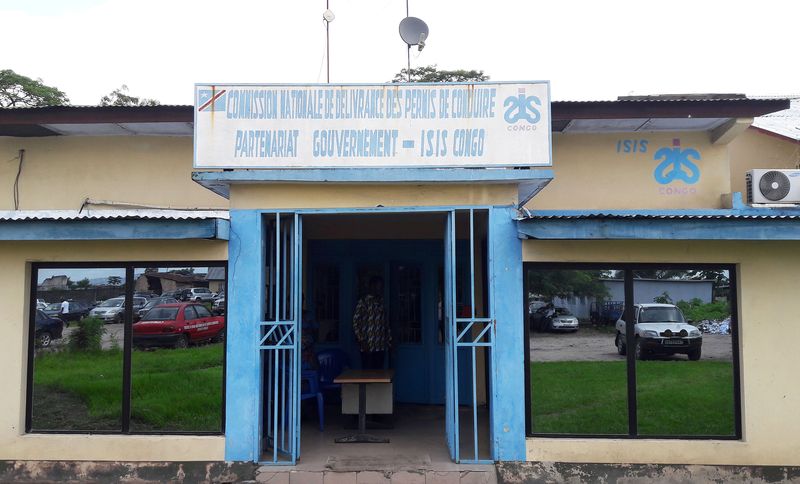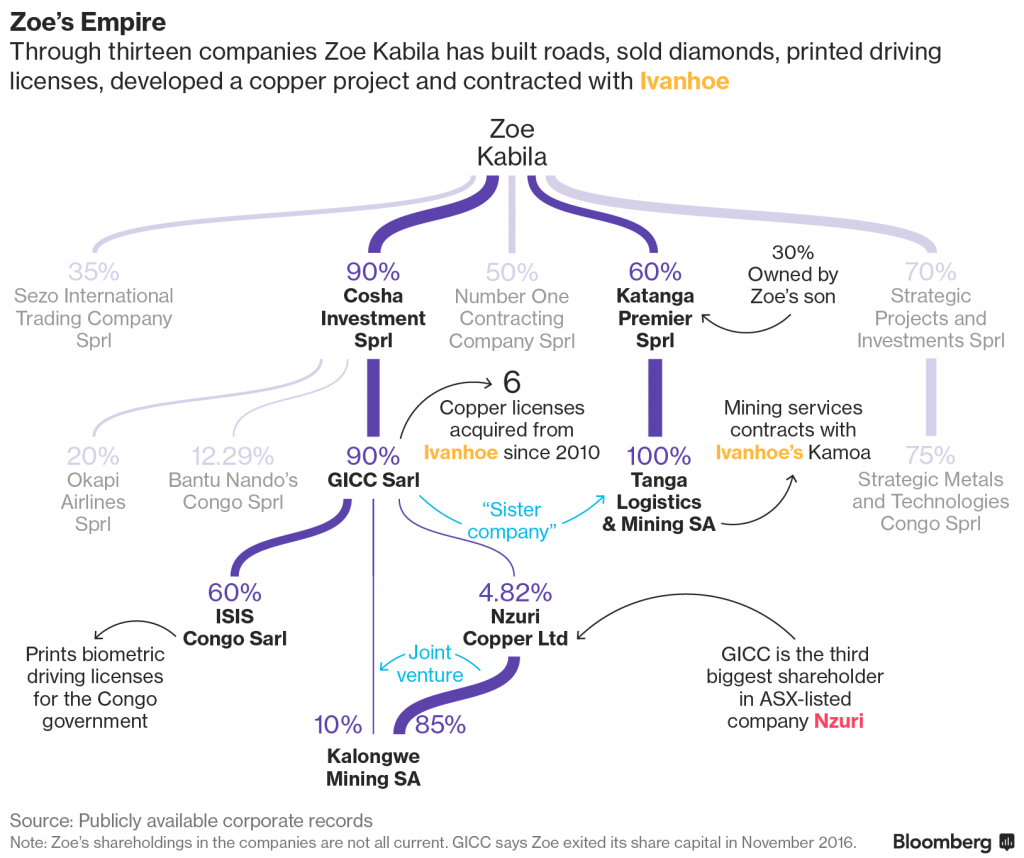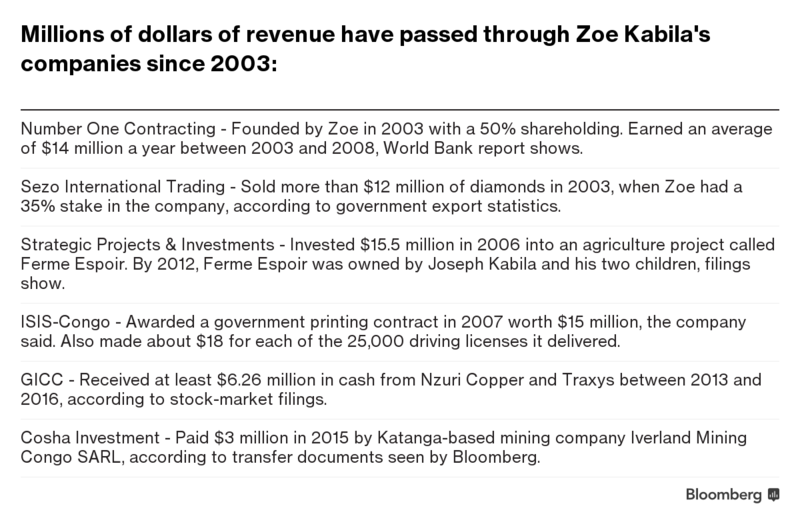
Zoe Kabila Photographer: Junior D. Kannah/AFP via Getty Images
Zoe Kabila, the brother of Congolese President Joseph Kabila, owns a business empire that encompasses everything from tourism to mining.
His companies have sold diamonds, owned a luxury hotel on Congo’s Atlantic coast, built roads, invested in farming, set up a fast-food franchise and printed driver’s licenses, according to a review of corporate filings obtained by Bloomberg. That’s in addition to contracts and partnerships with Ivanhoe Mines Ltd. and Nzuri Copper Ltd.
Zoe’s businesses, along with those of his siblings, have brought hundreds of millions of dollars to the Kabila clan, a Bloomberg investigation in December found. His father and former Congolese president, Laurent-Desire Kabila, fathered at least 25 children, according to a biography published in 2003. As of last year, one sibling, Jaynet, a member of parliament like Zoe, owned a stake in the local unit of mobile-phone company Vodacom Group Ltd. Gloria, another sister and a fashion designer, held a 40 per cent share in one of the country’s largest banks.
The commercial interests extend across the economy, making it difficult for corporations to operate without coming into contact with a member of the family. Zoe, 38, returned to Congo in 2001, when his brother became president after their father’s assassination. He’s set up at least 12 companies since then, according to publicly available corporate filings.
Delayed Elections
While Joseph Kabila was required by the constitution to step down last year his officials said it was impossible to organize a vote on time. Opposition parties accuse the president of purposely delaying elections to stay in power but accepted that that he could remain in office if a vote was held this year. The head of the country’s electoral body this month said elections can’t be held this year and will be delayed again, prompting criticism from the United Nations.
Congolese law doesn’t prohibit members of the president’s family from engaging in private business. Since becoming a member of parliament in 2011, Zoe has been required to adhere to a code of conduct for state officials and to disclose his assets and business activities.
“There is nothing that says this guy can’t do business,” Theophas Mahuku, Zoe’s partner in at least seven of the companies, said in an interview on the ninth floor of an aging tower block overlooking Kinshasa’s port and the Congo River.
Luxury Hotel
While Zoe publicizes some of his commercial holdings, like the luxury hotel owned by his Cosha Investment Sarl, his commercial dealings with some of Congo’s biggest investors have been uncovered for the first time by Bloomberg’s review of corporate records.
Zoe was unavailable when Bloomberg sought comment through intermediaries over a period of more than two months.
“Our father spilled his blood for this country,” he told the French-language magazine Jeune Afrique in a rare interview in August 2016. “Since we were children, he always said it was us who would rebuild the Congo.”
One business, which he exited in November, works from a dusty government building in Kinshasa, where the company’s logo, ISIS-Congo, is printed on the faded entrance. The company won the state contract in 2007 to print 25,000 biometric driving licenses, but only began providing the permits in 2012, according to Nicolas Nkan, head of the relevant government department. The deal was part of a $15 million government contract ISIS-Congo won with a French partner, Mahuku said.
Through his 90 percent shareholding in Cosha, Zoe has also owned stakes in an airline, the Congolese franchise of fast-food chain Nando’s Group, and controlled a further eight mining licenses for diamonds, gold and limestone, corporate filings and records from Congo’s Mining Registry obtained by Bloomberg show.

Photographer: Tom Wilson
Navigating Government
At least one of Zoe’s businesses has been contracted by investors to help navigate his brother’s administration.
In an early foray into the international mining industry, Cosha took a 90 percent stake in Congo-registered La Generale Industrielle et Commerciale au Congo Sarl, or GICC, in June 2007, after Mahuku established the company earlier that year. Six months later, Toronto-listed Moto Goldmines Ltd. contracted GICC to help obtain “all relevant government approvals and consents to enable the development” of the 11 million-ounce Kibali gold deposit in Congo’s northeast, according to a Moto stock market announcement.
At the time, Moto was engaged in a complicated contract-review process led by the Congolese government, in which it revisited more than 60 mining agreements. After Moto’s rights were upheld, it was required to pay GICC $2 million in cash and in March 2009 issued GICC with shares equivalent to a 1.11 percent stake. That stake was worth as much as $4.4 million when Randgold Resources Ltd. and AngloGold Ashanti Ltd. bought Moto seven months later.
Moto never disclosed the beneficial owners of GICC, neither did it report Zoe’s ties to the company.
Silent Shareholder
Sam Jonah, who was non-executive chairman of Moto at the time, said the company only dealt with Mahuku and, to his knowledge, Zoe had no involvement in the business. The board reviewed the GICC proposal, conducted due diligence and declared the contract publicly as required by the Toronto Stock Exchange, Jonah said from London.
Mahuku confirmed that Cosha owned 90 percent of GICC in 2007, but said the president’s brother had “zero role” in the Moto contract. “The problems they were having were at the Ministry of Mines, so it was me who resolved them. I had all of the relationships,” he said. Cosha transferred its stake in GICC to Mahuku in November, according to new articles of association provided by Mahuku.
GICC and another of Zoe’s businesses also chaired by Mahuku, Tanga Logistics and Mining SA, have worked with at least three other international mining companies, according to corporate filings and statements on GICC and TLM’s websites: Toronto-listed Ivanhoe, Australia-listed Nzuri Copper and the China-Congo partnership Sicomines. In each case, Mahuku said Zoe was a silent shareholder with no involvement in the company’s activities.
Biggest Investment
Sicomines is a venture on a 6.8 million metric-ton copper deposit. Its partners are China Railway Construction Corp., Sinohydro Corp. and Congo, represented by state-owned Gecamines SA and Societe Nationale d’Electricite. It’s the single largest investment in Congo’s history — a $3.2 billion mining project from which Zoe’s company is directly profiting, according to TLM’s website.
Sicomines didn’t respond to emailed requests for comment. Ivanhoe confirmed it worked with Zoe’s businesses, but said it had no knowledge of his ownership. Nzuri said it had no direct involvement with Zoe and declined to comment further. A spokesman for Nando’s didn’t respond to a voicemail seeking comment.
English Speaking
Mahuku said he first met Joseph Kabila in 1998 before being introduced to his twin sister, Jaynet, and then to Zoe.
“I used to speak a little English so this was the first interest and then we started talking,” he said of his first encounters with the future president, who grew up speaking English in Tanzania.
After Joseph and Zoe’s father Laurent-Desire was killed in 2001, Mahuku, along with Zoe’s elder sisters Jaynet and Josephine, joined the board of a foundation established in his name. The 54-year-old businessman has since helped set up at least a dozen companies for members of the Kabila family, corporate records show.
For many years Joseph didn’t give his family political work so they had little choice but to go into business, Mahuku said, explaining their involvement in more than 70 companies identified by Bloomberg last year.
“The members of his family had to find something to do, a way to live, and at that moment they would ask me: ‘Theo, can we create a company?’” he said



